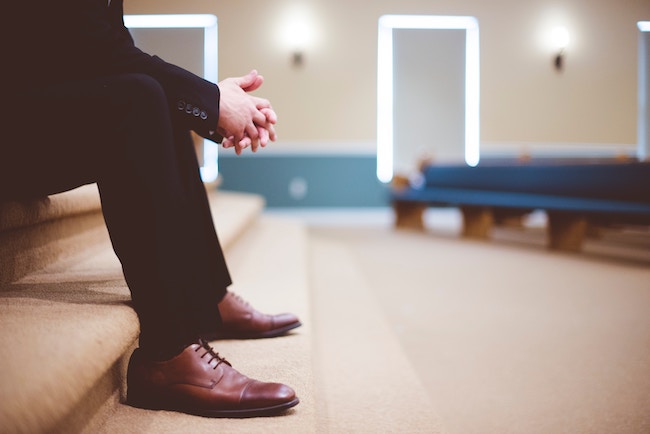In 3 Nephi 18, Jesus instructs His twelve disciples to obtain bread and wine and then instructs them to distribute it to the multitude in remembrance of His body and His blood. This, of course, corresponds to what we do today, which we refer to as communion, sacrament, or “The Lord’s Supper”.
When the above is complete, Jesus further instructs His disciples to continue to do the same thing on an ongoing basis, distributing bread and wine to “those who repent and are baptized in my name” (verse 11). Jesus emphasizes the importance of not giving the bread and wine to those who have not repented and been baptized — He refers to them as being “unworthy” to partake of His flesh and blood and that “whoso eateth and drinketh my flesh and blood unworthily eateth and drinketh damnation to his soul” (verse 29).
Although it may feel uncomfortable to think of anyone as being unworthy to partake, it helps if we remember that none of us are worthy to partake in and of ourselves. It’s only the blood of Christ that makes us worthy to partake, and that is applied when we repent and are baptized. Jesus makes this clear to His disciples; He adds that someone who is currently unworthy to partake of His flesh and blood can become worthy to partake:
“Nevertheless, ye shall not cast him out from among you, but ye shall minister unto him and shall pray for him unto the Father, in my name; and if it so be that he repenteth and is baptized in my name, then shall ye receive him, and shall minister unto him of my flesh and blood.” (3 Nephi 18:30)
In The Church of Jesus Christ today, we follow the above instructions of Jesus, as we only offer the bread and wine to the baptized members of the Church. Not everybody who visits the church will agree with this — some think the communion should be given to everyone. If anyone ever asks you why we do it this way, the simple answer is that Jesus said to do it this way, so the Church does it this way. No further elaboration is necessary. (You could try telling them they’re unworthy, but I suspect it won’t be received too well).
By the way, when you invite someone to attend church, it will help make the process go more smoothly if you can inform them that the communion is only distributed to the members of the church. Otherwise, your visitor won’t find out how it works until the presiding elder makes the announcement just before the distribution of the Lord’s Supper, which may result in disappointment if they were expecting to receive it.
Even as we follow Christ’s commandment regarding the exclusivity of the communion, we should not lose sight of the other part of his instructions — to not “cast out” the person who is currently unworthy to partake. We would never do this intentionally, but if someone feels unwelcome or not part of the congregation, the end result is the same.
Let’s be sensitive to the fact that visitors and non-members are being passed by with the communion, which has to make them feel unworthy (even if we don’t actually call them that). Let’s love them and pray for them such that they can be called into the church also. No matter how unworthy someone may be to partake of Christ’s body and blood today, they just need to repent and be baptized to become worthy to partake — the same way it worked for each of us.
This article has undergone ministry review and approval.






I think this is hardest for people that have been baptized in another faith. They often feel they do not need to be baptized again. We had a visitor one day who was searching and found us online. He had belonged to another church but was not happy. When he was passed up for communion he was very offended even though it was mentioned that it was for baptized members only. He was very vocal and even though the ministry wanted to talk to him later, he would have none of it. He kept saying that he was baptized. Even one of our teachers followed him out the door to try and explain. It was unfortunate, but he did not understand being baptized also means following the belief of the Church.
This reminds me of the wisdom of a very dear elderly sister. She spoke these beautiful words in an MBA class one Wednesday many many years ago in response to someone else in the class saying that there are a lot of good people out there in the world. This dear sister said: “Tell them about the Book of Mormon and then see how good they are.”